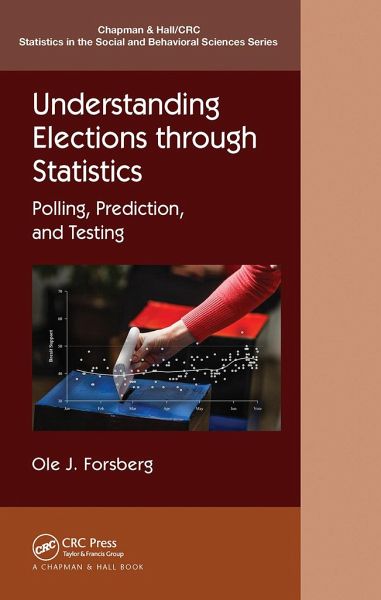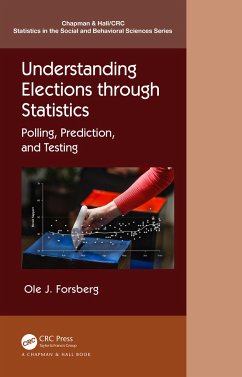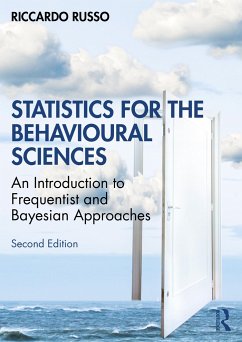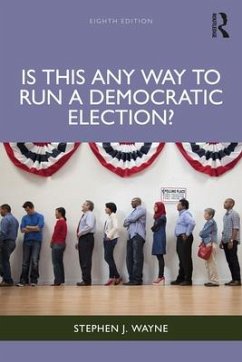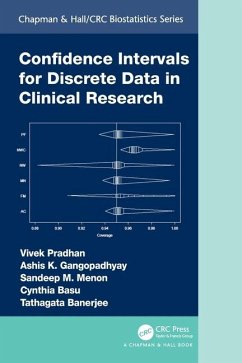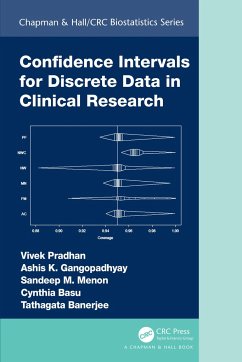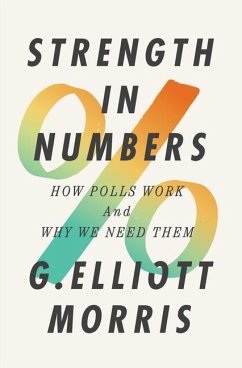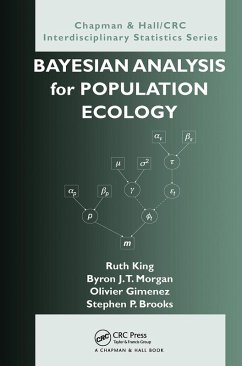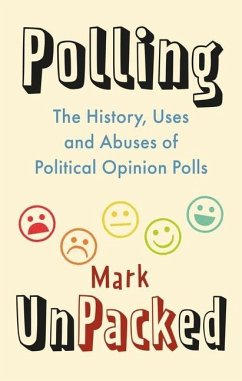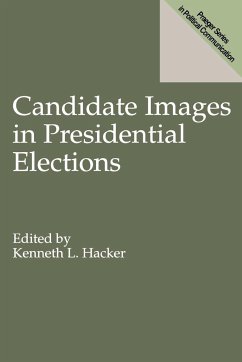Ole J. Forsberg
Gebundenes Buch
Understanding Elections through Statistics
Polling, Prediction, and Testing
Versandkostenfrei!
Versandfertig in 2-4 Wochen
Weitere Ausgaben:

PAYBACK Punkte
85 °P sammeln!





Elections are random events. The outcomes of competitive democratic elections are rarely known until election dayâ or beyond. Elections with Statistics explores this random phenomenon from two points of view: predicting the election outcome using opinion polls and testing the election outcome using government-reported data.
Ole J. Forsberg, BS, MAT, MA, MSE, PhDd, is an Assistant Professor of Mathematics-Statistics at Knox College in Galesburg, IL. He received a PhD in Political Science at the University of Tennessee-Knoxville in 2006, concentrating in International Relations, War, and Terrorism. After finishing his dissertation, Dr Forsberg began a deeper investigation of the statistical techniques he used. As a result of that embarrassment, Dr Forsberg began statistical studies at the Johns Hopkins University (MSE, 2010) and concluded them with a PhD in Statistics from Oklahoma State University in 2014. His dissertation explored and applied applications of statistical techniques to testing elections for violations of the "free and fair" democratic claim. His research agenda lies in extending and applying statistical methods to modeling elections and testing the results for evidence of bias in election results.
Produktdetails
- Chapman & Hall/CRC Statistics in the Social and Behavioral Sciences
- Verlag: Taylor & Francis Ltd
- Seitenzahl: 226
- Erscheinungstermin: 3. November 2020
- Englisch
- Abmessung: 240mm x 161mm x 17mm
- Gewicht: 486g
- ISBN-13: 9780367895372
- ISBN-10: 0367895374
- Artikelnr.: 60005048
Herstellerkennzeichnung
Libri GmbH
Europaallee 1
36244 Bad Hersfeld
gpsr@libri.de
"This unique book, by an author who is both a Statistician and Political Scientist, discusses the statistical theory of two important aspects of elections. The first half is an in-depth introduction to the classical statistical theory of polling, including estimators, confidence intervals, and stratified sampling. It comes complete with snippets of R code and many concrete examples, including two cases that challenged pollsters: the 2016 US presidential election and the 2016 Brexit vote. The second half concerns statistical methods for after the fact detection of fraudulent elections. It includes an in-depth treatment of methods based on the Benford distribution, but also methods based on classical regression analysis. Again numerous pieces
Mehr anzeigen
of R code and concrete examples are provided."
- E. Arthur Robinson, Jr., Professor of Mathematics, George Washington University
"This book has multiple layers that provides flexibility in its use. It makes polling and the statistical issues understandable for those who have little knowledge of statistics beyond the elementary course material. It includes enough of the mathematical underpinnings so that a student wishing to delve deeper into the material has that opportunity. It treats the material with cleverness and wryness that transforms the topic, usually thought of as "dry" by many people, into an interesting and compelling read. The use of maps and real-world examples help make the issues relevant and practical. It should be required reading for anyone studying political science and polling/elections, or anyone with a methodological background wishing to understand these topics at a greater depth."
- Mark Payton, Rocky Vista University
"The book contains a list of 145 most recent references and a detailed index. Many exercises and appendices with mathematical derivations are given at the end of chapters. Numerous R scripts are presented throughout the whole monograph, providing ready-to-run or make-it-yourself tools for practical implementation of all the techniques. The book can be interesting not only to students in political sciences and statistical methods but to a wider audience interested to understand the results and checkup fairness of elections."
- Stan Lipovetsky, Technometrics January 2021
- E. Arthur Robinson, Jr., Professor of Mathematics, George Washington University
"This book has multiple layers that provides flexibility in its use. It makes polling and the statistical issues understandable for those who have little knowledge of statistics beyond the elementary course material. It includes enough of the mathematical underpinnings so that a student wishing to delve deeper into the material has that opportunity. It treats the material with cleverness and wryness that transforms the topic, usually thought of as "dry" by many people, into an interesting and compelling read. The use of maps and real-world examples help make the issues relevant and practical. It should be required reading for anyone studying political science and polling/elections, or anyone with a methodological background wishing to understand these topics at a greater depth."
- Mark Payton, Rocky Vista University
"The book contains a list of 145 most recent references and a detailed index. Many exercises and appendices with mathematical derivations are given at the end of chapters. Numerous R scripts are presented throughout the whole monograph, providing ready-to-run or make-it-yourself tools for practical implementation of all the techniques. The book can be interesting not only to students in political sciences and statistical methods but to a wider audience interested to understand the results and checkup fairness of elections."
- Stan Lipovetsky, Technometrics January 2021
Schließen
Für dieses Produkt wurde noch keine Bewertung abgegeben. Wir würden uns sehr freuen, wenn du die erste Bewertung schreibst!
Eine Bewertung schreiben
Eine Bewertung schreiben
Andere Kunden interessierten sich für



